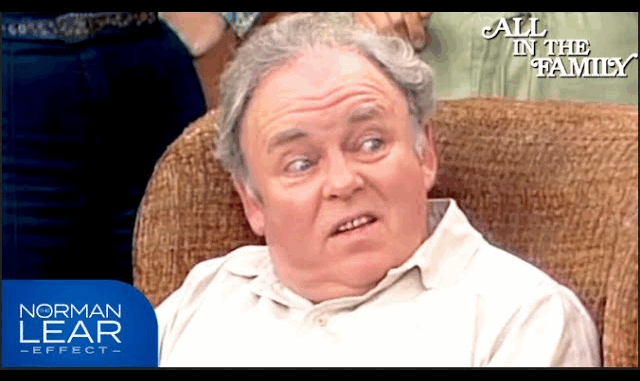
Before All in the Family, American television largely lived in a fantasy. Sitcoms of the 1950s and 60s, from Leave It to Beaver to The Donna Reed Show, painted an idealized portrait of suburban life: harmonious families, clean-cut morals, and problems that resolved neatly in under thirty minutes. Then, in 1971, a loudmouth from Queens named Archie Bunker changed everything.
With the premiere of All in the Family, television took a sharp turn toward realism. Gone were the polished smiles and moral platitudes. Instead, viewers got working-class grit, intergenerational conflict, and unfiltered language that made network censors sweat. Norman Lear’s show didn’t just entertain — it disrupted.
This shift didn’t happen in a vacuum. By the late 1960s, America was in turmoil: the civil rights movement, Vietnam, women’s liberation, and economic upheaval were reshaping the national consciousness. Yet television had been slow to reflect that change. Lear’s genius was to recognize that the living room — both on screen and in real life — was the perfect battleground for these tensions.
All in the Family marked a watershed moment in the history of TV as a cultural institution. It moved beyond escapism to confront the audience with its own contradictions. It brought politics into the home, not through lectures or special episodes, but through jokes, arguments, and uncomfortable silences. Viewers weren’t just laughing — they were thinking.
Importantly, All in the Family was also one of the first network shows to challenge the notion of the “perfect father.” Archie Bunker was deeply flawed: racist, sexist, stubborn. Yet he was also human. The portrayal forced audiences to wrestle with the idea that love and ignorance could coexist — and that change doesn’t come from moral superiority, but from conversation.
The show’s legacy is visible in the DNA of modern television. Series like The Office, Modern Family, and even dramatic comedies like Atlanta or BoJack Horseman owe their social sharpness to the trail blazed by All in the Family. It proved that TV could be funny and fearless — a forum for grappling with the real America.
Today, as new generations of creators attempt to balance entertainment with authenticity, All in the Family stands as a reminder: sometimes the most powerful stories are the ones that reflect us, in all our flaws and complexity. Not every viewer agreed with Archie. But every viewer saw a piece of their world in him — and that’s what made the show revolutionary.
